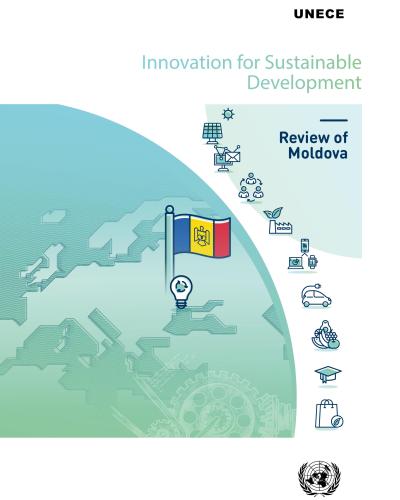Innovation for Sustainable Development, Review of Moldova

Since independence, Moldova has navigated the challenging transition to a market economy while achieving significant, albeit volatile, economic growth, reduced poverty levels and the status of a lower-middle-income economy. However, productivity growth has declined as original drivers of structural change in the early post-independence era have run out of steam. Moldova’s commitments under the United Nations 2030 Agenda for Sustainable Development and the imperative to transition towards a more circular and inclusive economy, will mean that innovation, in the form of systematic experimentation with ideas, must take centre stage in development efforts. Recent events have made such an approach even more important to ensure a resilient post-pandemic recovery.
Over the past decade, Moldova has made significant efforts to improve its business environment and encourage innovation through regulatory reform, providing better conditions for entrepreneurs and enhancing its national innovation system. Successful examples of innovative development taking root in Moldova can be found in the IT sector, Free Economic Zones, certain knowledge and technology-based firms in traditional industries as well as in the agri-food supply chain, all of which can be viewed as “pockets of excellence”.
While commendable, current developments cannot fully address key future social, economic and environmental challenges until such experimentation is sufficiently widespread and embedded in the Moldovan economy. A clear, targeted focus on improving private sector capabilities, as well as those of public and private research organizations, to absorb and adapt ideas will be crucial, especially in the aftermath of the COVID-19 pandemic. Scaling up initiatives that work, drawing on the substantial potential of a highly-educated workforce and harnessing the diaspora’s social capital will all require well-coordinated policy action at both the national and subnational levels. Effectively leveraging these key resources, alongside the nation’s solid legacy in public research and its proximity to key European and Eurasian markets, could open the door to significant, innovation-driven sustainable development.
This review takes an in-depth look at the factors, both positive and negative, that have a bearing on innovation-led sustainable development in Moldova and provides tailored recommendations to tap the potential for resilient and inclusive social and economic transformation.
UNECE advisory work in the field of innovation draws on longstanding engagement across the countries of Eastern Europe and the South Caucasus, including the recently published Subregional Innovation Policy Outlook 2020: Eastern Europe and the South Caucasus. This review also builds on the policy best practices developed by the UNECE Committee on Innovation, Competitiveness and Public-Private Partnerships and is the result of a concerted, comprehensive approach with systematic stakeholder engagement and peer review.
UNECE would like to express its deep gratitude to the Swedish International Development Cooperation Agency (SIDA) for its generous financial support, and to the Government of the Republic of Moldova, including the national focal point, the Ministry of Education and Research, for their excellent support to this project.








